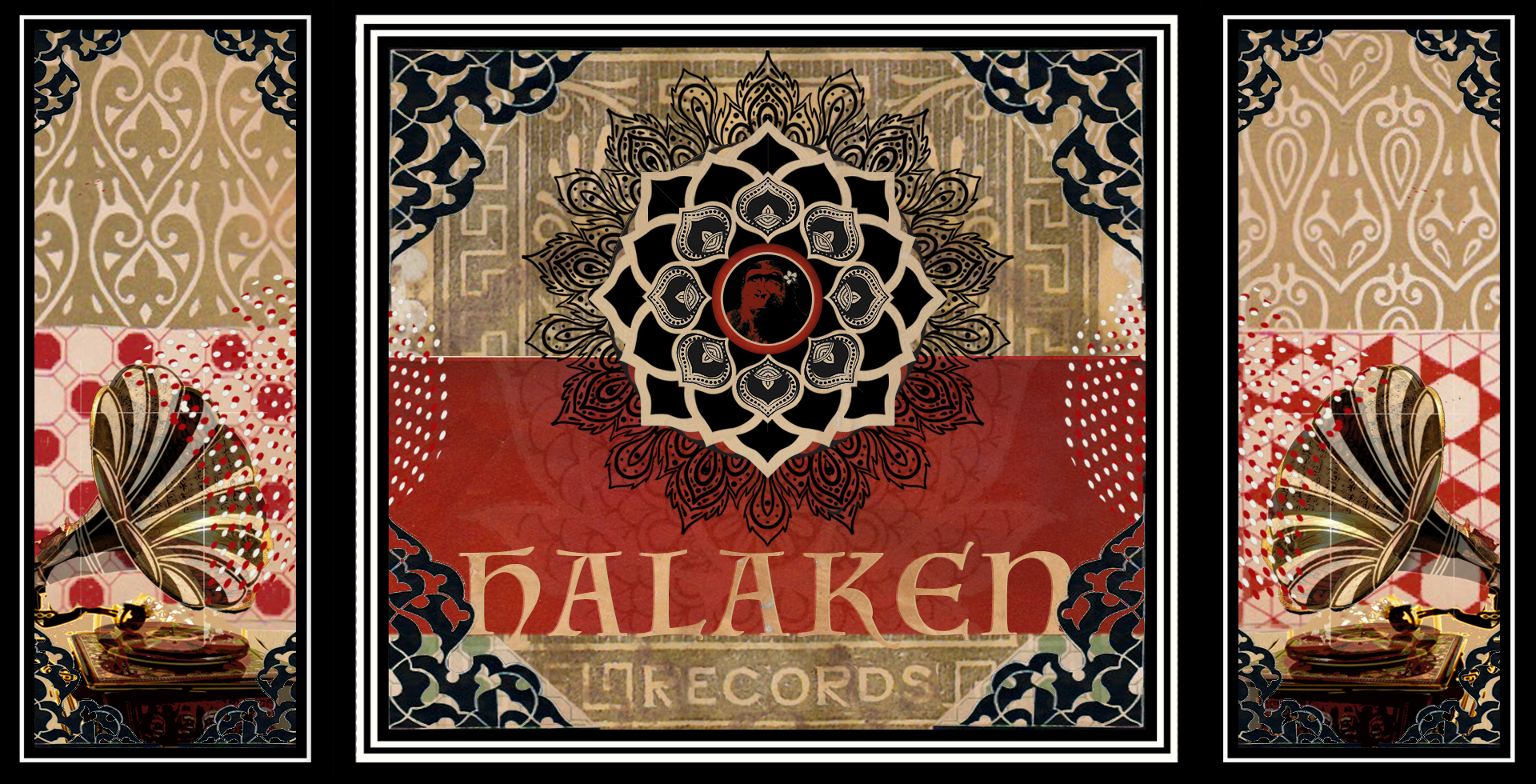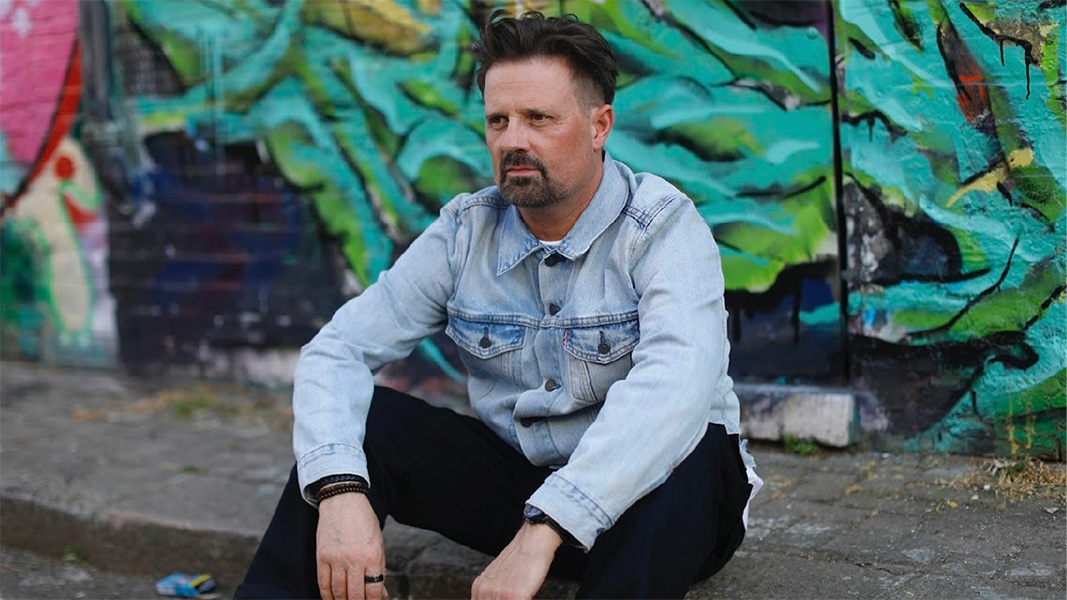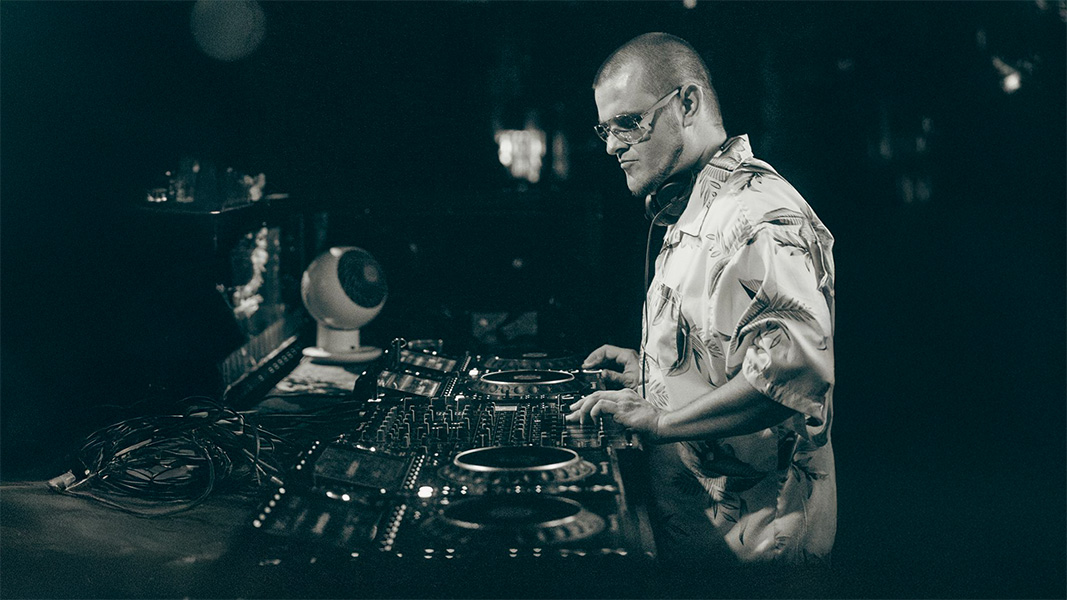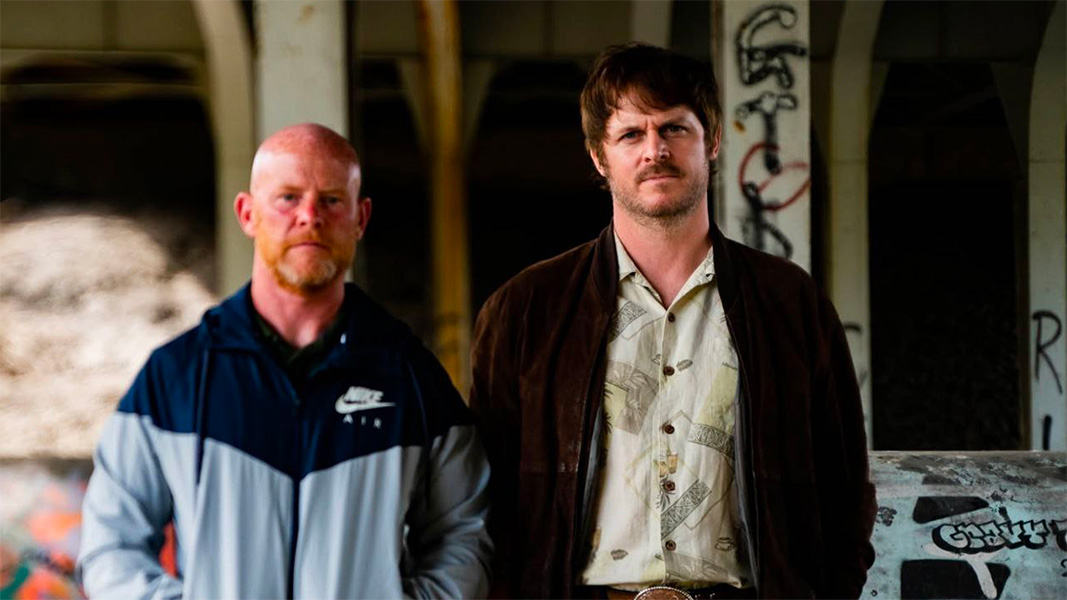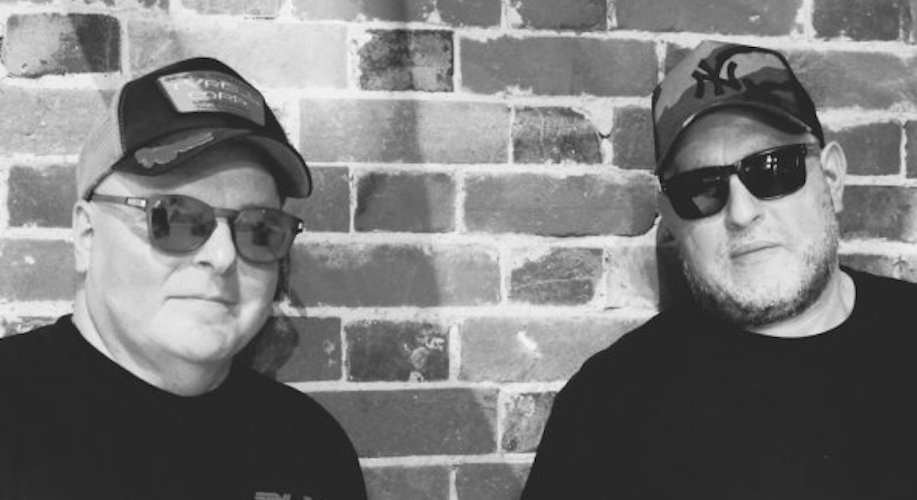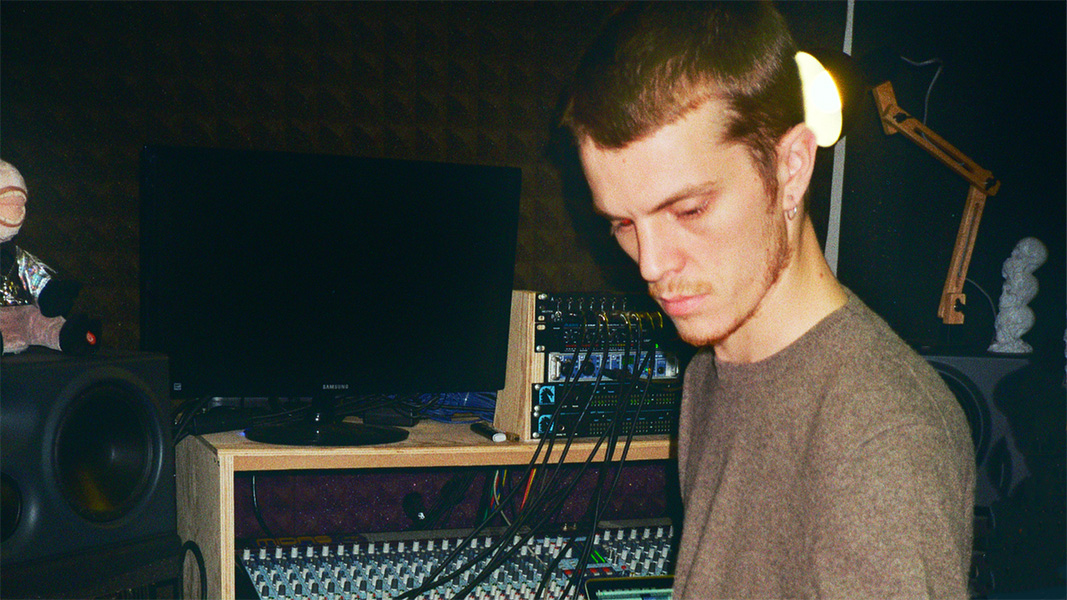People like Arkin Ilicali, popularly known as Mercan Dede, are responsible for driving much of the musical evolution that has come to define contemporary music. He was one of the first musicians and producers to merge traditional instruments and sounds with modern new age technologies. He’s been a trail blazer for a generation of musicians, producers and DJs, redefining the relationship between tradition and rebellion with respect and honor.
A fascinating, focused mind, Dede has led and continues to lead several lives. Once a respected professional table tennis player, a scholar and professor of visual arts in both the traditional and contemporary field, his is a mind that sees a uniquely powerful vision and relentlessly combines every existing means to actualize it. His visual art combines contemporary street art techniques, and traditional methods of painting and collage, with sophisticated composition and spiritual conceptualism.
He is known for bringing together all of his creative exploration into his live performances, where he orchestrates ensembles containing some of the world’s best unearthed musicians, iconic contemporary dancers and visceral visual displays.
After a 3 year period of artistic incubation and reinvention out of the public eye, working primarily out of his studio in Montreal, a new horizon is dawning. 30 years into an illustrious career laden with achievements like Womex’s best album of the year, headline positions at events and venues like Montreal Jazz Fest, Motreaux Jazz Fest, The Sydney Opera House, and The Eiffel Tower, Dede refuses to rest on his laurels. The Turkish-Canadian multidisciplinarian is set to embark on a new chapter of his career, shifting his focus towards the generation he has done so much to inspire.
We sat down with Mercan Dede in the Old Port of Montreal to dive into his new project, and pick the brain of one of the most influential artists of his time.
WWD: What have you been up to these last years?
More than 800 years ago Rumi said; “Stories about yesterday are left in yesterday, now you have to tell a new story today“. The last 2 years I was in the process of learning; how to tell a new story. While doing this, the real challenge was that I didn’t want the story to be about me. I wanted to be more of a storyteller and be able to let this new story flow and have it resonate with its audience freely, without any single person attached to it.
WWD: What is Halaken?
Halaken is one of the most simple and profound truths ; we are all one. You are another me. I always feel that way, but more and more I see the separation between ‘Me/Them’ and ‘I/You’ melting away.
Sufi said “when your crossed eyes fixed, what you used to see two, becomes one.” Being in my 50’s, it’s a good time for eye sight reconfiguration.
 .
.
WWD: What inspired this new chapter?
It is not only an inspiration, but also a certain type of feeling responsible to see what’s happening around us – in our lives, in our neighborhood, and in our planet . I have an urge to respond to this emergency call with Mother Earth, and this is the most effective way I can bring light to the change thats needed.
Going back to meaning of Halaken, if the truth is “you are another me”, this means all living things are also another me, I am not separated from any of them. If a certain part of my body hurts, I feel this pain all in my being and I would try to ease and heal the pain. You don’t say “my leg has a cut, its bleeding and hurting terribly… but I won’t do anything about it.” You know your leg and rest of your body are all in one, so you take care of each little ache and pain. This is how I feel about the earth and the current predicament we created for ourselves.
WWD: So this chapter came as a result of being in the right place, at the right time – to plant the seeds in the right season, among the right people.
Let’s finish this question with another Rumi quote: “As you start to walk the way, the way appears “.
It was time to stop talking and start walking, with all the good intentions I have. I took the first step, and the path has started to appear. Now it is all about staying focused, determined and tuned in with this new path’s energy. After each step, the next step will appear, and we will continue to make the change that is needed.
WWD: What is the vision for this project?
I really can’t define it by myself, because it is not just my project. It is something larger than me or anyone involved with it. It is a collective and collaborative journey with a small dedicated, unique, hard working people with an obsessive love towards art, and specially music. Our vision is also a “work in progress”, shaping each day through many events happening around us and on our planet. We all have serious concerns about the well being of planet earth; environmentally, politically, financially, and socially. Together, we feel art is probably one of the last important weapons we have to create some awareness to these issues.
With Halaken Collective, we also believe we can create a small creative network among like minded inspirational people from different parts of the globe, to exchange ideas and collaborate in different creative projects. At the same time, we’ll continue to develop a multidisciplinary non-commercial platform. We can freely create and share our art with the rest of the world, with the total ownership and control over how it is presented.
WWD: What kind of collaborations can we look forward to?
Even though we are starting with the record label as a first step, we consider ourselves a multimedia label. All the music we will release will also have video content. We are very lucky to be surrounded by incredibly talented artist and companies. Ouchhh is one of our favorite emerging multimedia companies from Istanbul. We see them as family, and we are already working towards some insane content with them.
In our small incredible community, we have performers, curators, acrobats, choreographers, painters, film makers, DJs, producers, writers, musicians – all sorts of shapeshifters and magic makers. Each one of these people are not only amazing human beings but also already established, experienced, and respected professional unique artists with similar concerns and parallel world views.
Our collaboration will open to all disciplines. We are created with 5 innate fundamental senses, therefore we have to create for each of the 5 senses. While we are starting with audio and video, there is much more to come.
WWD: Why start a new label when OnEarth and Double Moon were already so successful?
Doublemoon was an incredible experience because so many amazing world music, jazz, and fusion artists came out of that 20 years period. Some of these global artists became extremely successful and produced superb music.
OneEarth was one of my biggest dreams with my great friend and partner in crime from the Borusan family. I released one of my most costly and time consuming albums, Dunya (Earth) thanks to this support I had from OneEarth. We had a label that releases non-commercial, meaningful contemporary world music. Every two years, we produced one album for a young talented Turkish instrumentalist who does not have the support or finance to put be able to record their incredible work. In the 4 years, we had two amazing young musicians introduced to music world with their first album. Now they both perform globally.
I am a super lucky person to be part of these labels. Both of them became extremely consuming, both in terms of finances and energy. Considering that the majority of people no longer buy music, but listen freely, it became unsustainable. I think they both did their mission very successfully.
It was time to move on. I was envisioning a collective label that it is not only focused on developing individuals, but more focused on promoting new, challenging ideas and concepts; A label that has a specific world view where all the diverse artwork comes to support this vision with original, meaningful, and honest artwork.
WWD: What led to Kapadokya being the first release?
Kapadokya is the most mysterious place I have ever been in my life, and I travel a lot! When you are in Kapadokya, you are in another planet. At night, if you walk on the valley, it is more like the moon than earth.
2 years ago I performed an acoustic live performance with an amazing key-player, Burak, from my band. In order to get to the where we’d perform, a guide led 50 people on an hour-long walk on the valley floor, under a full moon, to arrive at the ruins of a 6th century church. We played a candle-lit show, while they served the regions amazing red wine – this was one of the most amazing experiences I have ever had as a performer.
Last year I went back to Kapadokya to perform at Capadox festival. The morning after I arrived, I was asked to DJ in a hot-air balloon, hovering quietly over Kapadokya during the sunrise. Even though I am not comfortable in front of a camera, after the magical journey when I looked at the footage, I realized how amazing the whole experience was. This is the footage we use in the music video.
Since Halaken is a new amazing journey with talented, thoughtful, and inspirational friends, I think in a mysterious way, Kapadokya landed in our arms as a first release of Halaken. Every day I feel more and more that it is such a proper and fitting start, both as a song and video.
WWD: Why is the project based in Montreal and not Istanbul?
Dede – First of all, Montreal is an incredible meeting point for diverse artists with different backgrounds. For a small city, it has an extremely vibrant art and music scene. Also, the rest of the family who are part of this project are based in Montreal – either born here, or brought their lives here to explore its magical charm.
Since this is a collaborative vision, we wanted to be based in a place that we can come together to develop. Most importantly is having an awesome friendship, and the ability to have real human, soul-to-soul, face-to face-contact is essential; Discussions, hangouts, recording sessions, DJ jams, producing, exploring, and of course partying! Montreal is the perfect host for Halaken.
WWD: Do you feel your focus or motivation has shifted in recent years? If so, how, and why do you think it has?
Technically speaking, I feel like there are two important parts of my life – (1) my more academic background in visual art and (2) my 30 years of experience in the music scene. They have naturally met each other and emerged as one through Halaken. That’s why I see myself more as a multimedia artist, even though I don’t consider myself as an artist in the classic sense, and I don’t care much about “being an artist”.
I think spiritually and politically, now is the time to focus more on collaborative, collective work as opposed to just focusing on Mercan Dede. Everything I’ve learned, and continue to learn, from creating art to presenting and performing art, is being recycled. I want to use this experience and spotlight from Mercan Dede and direct it to different projects, with like-minded creative people from all around the globe under the roof of Halaken.
WWD: Over your career, what have been some of the most important lessons you have learned?
Love all, trust few, do wrong to none.
If you can’t help, least not hurt.
It is applicable to every aspect of life, from finances to spirituality to politics, and the environment.
WWD: What do you feel were the most important points of evolution in music since you start making it?
In terms of music industry, we entered into a whole different territory with the development of internet over the last 30 years. The global use of cell phones, aka mini computers, and the powerful instant communication made available via social media, I think we are experiencing a very unique, dangerous, exciting, and important part of human evolution.
I think as early as 1998, I was asked in an interview what I thought about the future of the music industry. Not a big statement about music in general, but related to the music I am involved in – which is world beat, electronic, and fusion. My answer was “a combination of electronic and futuristic versus ethnic tribal.” In ethnic tech house, downtempo, ambient, and world music, we see many young talented artists emerging today in this scene.
When you especially look at the last 100 years of music history, in my humble opinion, after the mid-90s nothing earth-shattering happened. There are many reasons for this, but that is a whole different interview topic. I think even with it’s ups and downs, electronic music is the most important point of evolution in music since I started 30 years ago.
WWD: If there was one thing you could change about the music industry as it is today, what would it be?
I wish there was not one… Where to start ?
While evolving from physical record and CD to digital sales, nothing has changed in terms of how unfair and greedy the whole system is towards artists, especially young emerging talents. The thief changed his mask, but his process stays the same. It was unfair before, and it is unfair now.
When they sold my albums in music stores like HMV, it cost around 24 $. After everyone get there cut, taxes, etc, I would get less then 50 cents.
Now let me tell you some platforms for streaming and their payouts (per purchase)…
Napster 0.019 $
Tidal 0.0125 $
Apple Music 0.0073 $
Google Play 0.0067 $
Deezer. 0.0064 $
Youtube 0.00069 $
Simply put, the system is not designed for musicians or artists. It is purely designed for mega corporations to make insane amounts of wealth, and throw you a few dimes to fulfill their so-called LEGAL duties.
We have to fight against it.
This is why I think independent artists have to create their own independent collectives with like-minded people. We need to support each other and not let their art or their living be abused by one or two mega corporations which control the whole market. We are almost beyond the “monopoly stage”. I recommend everyone to pay attention to the thoughts and achievements of Nipsey Hussle on this topic, he summarized it quite well and simply.

WWD: What do you feel have been the most important keys to longevity in your career?
Staying alive is a number one!
Avoiding a separation between my life and my creative process was an important decision. My music, paintings, short films, remixes, works as a producer, compositions for dance companies, all come right from the center of my life. They don’t reflect my career choices, but rather my life choices. This gives me the opportunity to create something honest, something real. I think no matter where I perform, my audience feels this both in live shows and recordings. I record my albums at home. When you come together with the artists you love, respect, admire, and you get to know each other – you talk, you laugh, you cry – and someone whistles something, or recites an amazing line of poetry, and you say, let’s record this.
If I am not capable of change, progress, or taking risks and exploring different territories in life as a person, then I am not interested in creating art based on smart ideas or trendy intellectual discussions. I let my art be a natural echo and reflection of my life.
When something comes from your mind’s lips, even before it reaches to someone’s ears, it starts to lose it’s meaning. But when something comes truly from the heart, it reaches directly to other people’s hearts who are tuned to a flow of energy with you. It’s the old kind of wireless connection.
Bringing it back to the question, I would say stay tuned to your own life source. Stay connected, stay honest, and do your own thing, your own way, with your own time. You can go on that path until your last breath without repeating yourself, and after your last breath, you start a new symphony.
WWD: What do you think are some of the most exciting emerging technologies?
Dede – I have a mixed feelings about technology. The parameters are clear: if you use technology for the right positive purposes, it is a great tool for human evolution. But when technology starts to use you, or powers behind the technology use technology for their dangerous agenda to control the very last natural resources of our planet, as well as the human mind, then we are in serious trouble. Considering technology emerges from the investments of governments and big corporations like the military industrial complex, technology without a certain type of moral compass or wisdom might have severe consequences.
On the other hand, I think the emerging use of AI for the right causes by the right people seems to be quite an interesting field to explore. I think our partners and amazing friends at OUCHHH are just doing that.
WWD: In a time where music and entertainment has been commodified to an extreme, and is being consumed at an unprecedented pace, what do you see for the future of music and entertainment?
Dede – I think I will continue to say the same thing I did 20 years ago. More technology pushes us in the direction of a machine world. To balance this, we will continue to explore and express our primal, tribal, human emotions and thoughts artistically. Burning Man is a good example of this for me. On one side you have a massive cargo plane in the middle of the desert with all its gadgets, laser lights, sound systems, projectors, LED lights, and DJs. On the other side, you have people who have come together around one big campfire, like our ancestors would have done a couple hundred thousand years ago.
I think the artists who understand and use all the technology of the future very smartly, yet are connected to the roots of ancient wisdom, will be the ones to lead the way with meaningful music, entertainment, art, and culture.
Overnight fames will be replaced by more overnight flames. Thousands year from now, if we survive that long, humans of the future will still listen to Leonard Cohen, Bach, Miles Davis.
WWD: Who have been some of the artists that have inspired you the most in your career?
Dede – I consider myself an incredibly lucky person to share a stage and to collaborate with artists I’ve admired and respected all my life. It’s hard to name specific ones, and I don’t want to sound ungrateful for many others, but I will tell you what’s come to my mind in this moment.
Meeting with Pina Bausch was quite epic. In a strange twist of fate, we kept connected until she passed away. She was an extraordinary choreographer and artist. I would say my love towards dance theatre and multi media productions fired up after I met her and had the opportunity to work on one of her last projects, ‘Breath’.
Another one I must mention -Ludovico Einaudi. It was incredible to perform on a stage and travel with him for different projects with different musicians and performers. I’ve been lucky to witness over 15 years of his career and learn from how he always manages to move forward in the right direction. Also on a personal level – how sweet, kind, and honest of a person he is! Ludovico has had an important impact in my career. I consider him a great friend, and a truly inspirational artist.

Connect with Halaken Records

